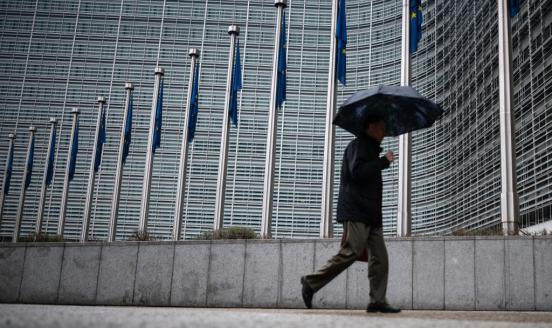Competition policy and regulation in the banking sector
Speakers
Mathias Dewatripont
Professor, Université libre de Bruxelles - ECARES,
Gert Jan Koopman
Director General, DG NEAR, European Commission
Xavier Vives
Professor, IESE Business School and Research Fellow, CEPR,
Michala Marcussen
Global Head of Economics, Société Générale, Corporate and Investment Banking,
SUMMARY
The event started with a presentation by Xavier Vives, Professor of Economics and Financial Management at IESE Business School, who introduced his new book “Competition and Stability in Banking”. By looking backward through the different banking crisis, it seems that regulation has not being able to cope with shadow banking – there were failures even when the sector was strongly regulated. After decades of deregulation, the Global financial crisis stressed again the need for a well-made regulation in the banking sector. However, the consequences of the last crisis shock and the reintroduction of massive regulation led to a distortion in competition. In fact, the assessment of the trade-off between competition and stability relies on the assessment of the trade-off between competition policies and regulation.
The fundamental idea is that more competition will improve social welfare if and only if sources of market failures are eliminated. However, more competition means more instability, which increases coordination problems and incentives to take risks. There is a broad consensus in the literature that liberalization without regulation actually leads to crisis. Therefore, there should be coordination between prudential regulation and competition policy, guaranteed by two well-separated regulatory and competition authorities. Finally, regarding consumer protection, Professor Vives suggested putting it under the responsibility of the competition authority. The prudential authority is currently in charge of consumer protection in Europe, which might lead to conflicts of interest.
Mathias Dewatripont, the Executive Director of the National Bank of Belgium, gave also a short presentation discussing the book by Professor Vives. Overall, his comments were positive; he notably pointed out that the book raised very accurate and relevant issues. He contributed to the debate by mentioning the difficulty to restore health to the EA banking sector in a time of low profitability and high level of NPLs, the potential use of public money, the trade-off between current and future crisis (hard to be fast enough in reacting to current crisis and at the same time try to be forward looking and prevent future crisis), the State Aid in Europe, and the challenges raised by the BRRD.
Gert-Jan Koopman, Deputy Director General of DG COMP, agreed on most of the points raised by Professor Vives’ book. According to him, it will not be possible to address all the issues at the European level, national authorities have to take their responsibilities and make the primary necessary changes in terms of regulation and competition. Moreover, he broached the trade-off between short-term and long-term and the need to ensure the stability of “the rules of the games”.
According to Michala Marcussen, Global Head of Economics at Societe Generale, the main challenge faced by the banking sector is the shadow banking along with the rise of international banking. We do need to take into account the global dimension and to ask for stability and visibility. There is obviously still a lot of uncertainty about the future architecture, however new policies should all aim at getting back to economic growth. She warned against the current complexity of regulation, which is too often considered as a guarantee of safety. She also stressed the issue of innovations in the banking sector and the necessity to think about how to regulate bitcoins or crowdfunding.
Finally, during the Q&A, the panellists discussed the issue of recapitalization and its implications, the development of the Capital Market Union, the provision of liquidity and the restructuration of the banking sector.
Event Notes by Justine Feliu, Research Assistant








